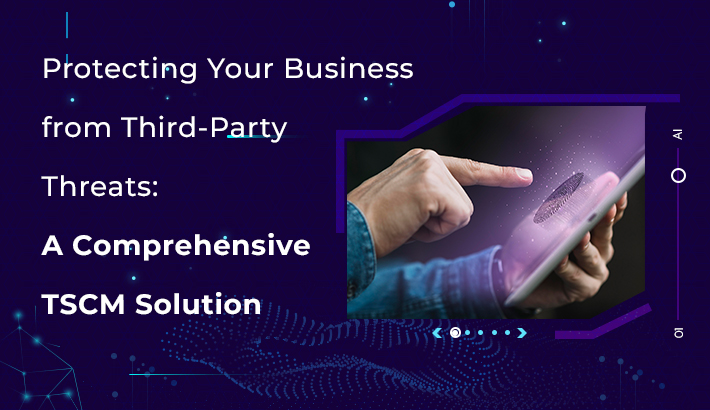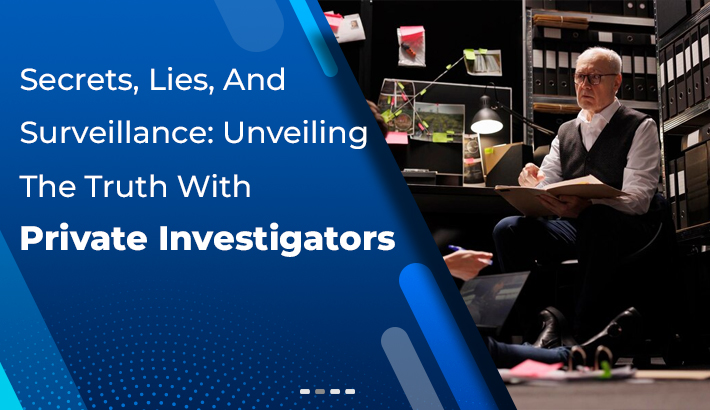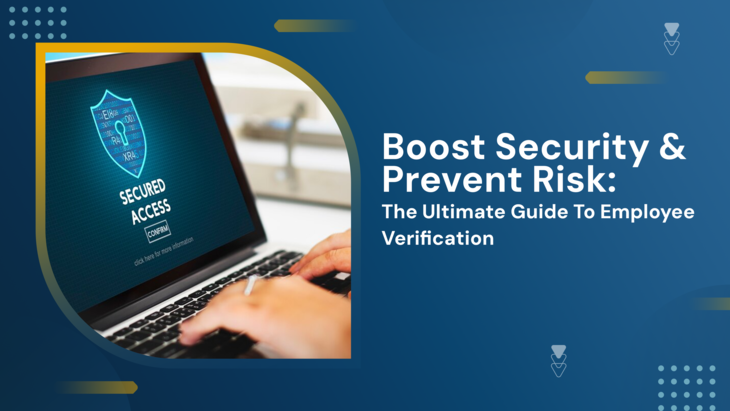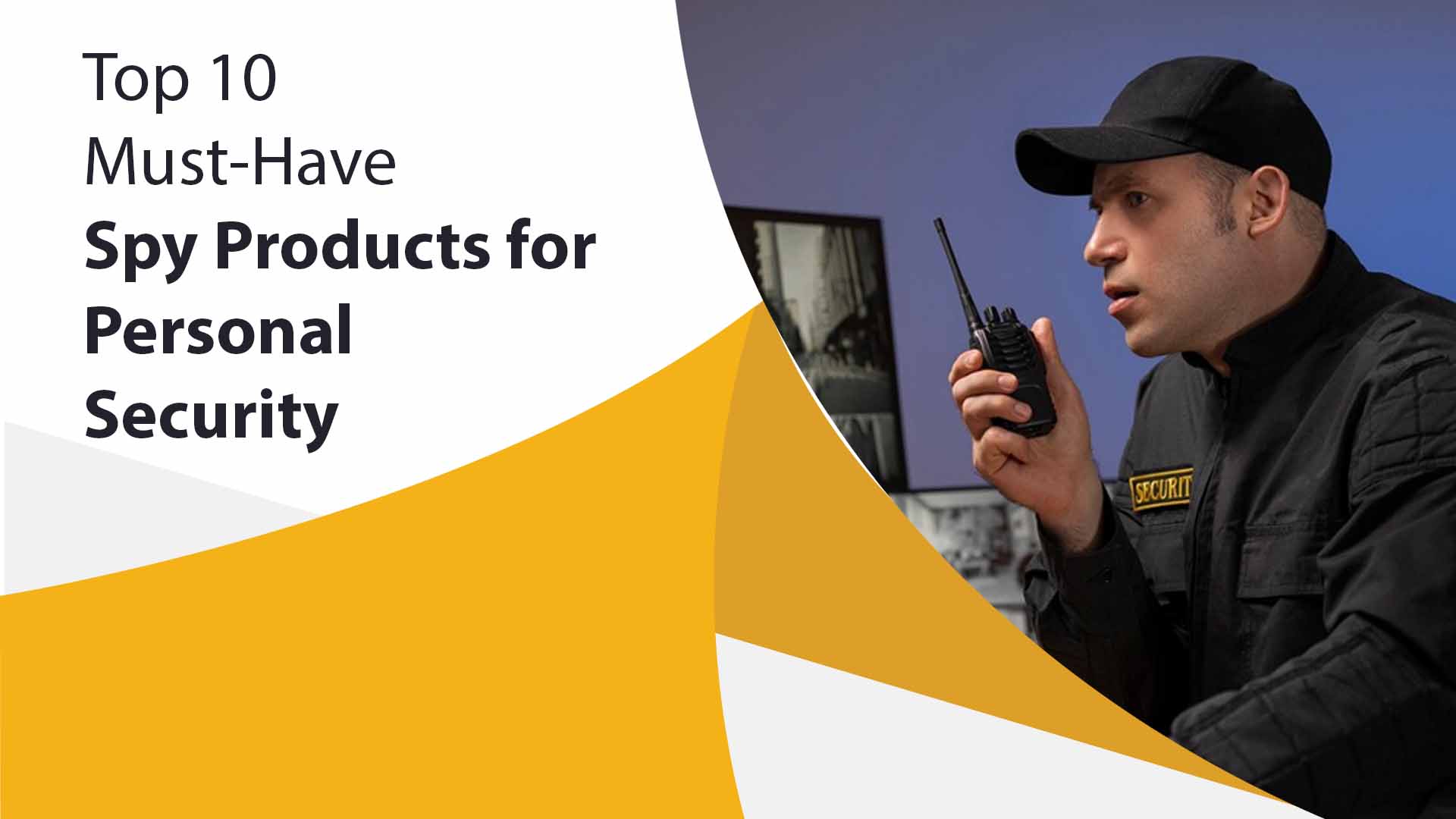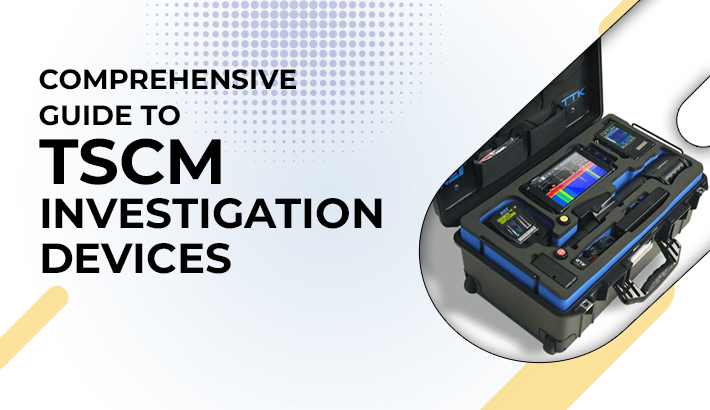In today’s hyper-connected world, businesses operate within a landscape rife with competition and potential threats. Sensitive information, from trade secrets and product development plans to confidential negotiations and client data, forms the lifeblood of many organizations. Protecting this information from unauthorized access is paramount, and this is where TSCM solution (Technical Surveillance Countermeasures) come into play.
What is TSCM?
TSCM, also known as “bug sweeping” or “electronic countermeasures,” is a comprehensive process designed to detect, identify, and neutralize hidden surveillance devices planted within a physical environment. These devices can take various forms, including listening bugs, hidden cameras, GPS trackers, and even sophisticated wiretaps.
The primary objective of TSCM is to safeguard sensitive information from unauthorized interception by third parties. This could include competitors seeking an unfair advantage, foreign governments engaged in espionage, or even disgruntled employees. By implementing a robust TSCM strategy, businesses can:
- Maintain a Competitive Edge: By preventing sensitive information leaks, businesses can ensure they retain their competitive advantage in the marketplace.
- Protect Client Confidentiality: TSCM safeguards client data and fosters trust by preventing unauthorized access to personal or financial information.
- Mitigate Legal and Reputational Risks: Data breaches and information leaks can lead to hefty fines, lawsuits, and severe reputational damage. TSCM helps businesses mitigate these risks.
- Ensure Peace of Mind: A secure work environment free from the fear of surveillance fosters a sense of trust and well-being among employees.
The TSCM Process: A Multi-Layered Approach
A successful TSCM solution strategy goes beyond simply sweeping for bugs. It’s a multi-layered approach that encompasses various techniques and considerations:
- Threat Assessment: The first step involves a thorough assessment of the business’s security needs. This includes identifying sensitive information, potential adversaries, and the level of risk associated with information leaks.
- Physical Inspection: Trained professionals conduct a meticulous visual inspection of the premises to detect any suspicious devices or anomalies. This may involve checking for hidden compartments, unusual wiring, or tampered equipment.
- Technical Sweeping: Specialized equipment is used to detect electronic emissions from hidden surveillance devices. This includes spectrum analyzers to identify radio frequencies used by bugs, non-linear junction detectors (NLJDs) to locate hidden circuitry, and thermal imaging cameras to detect heat signatures of electronic devices.
- Technical Security Review: The TSCM team evaluates the building’s security infrastructure, including IT networks, phone lines, and physical access controls, to identify potential vulnerabilities that could be exploited for eavesdropping.
- Sweeping Frequency: Regular TSCM sweeps are essential, especially for businesses handling highly sensitive information. The frequency of sweeps depends on the threat assessment and can range from monthly to annually.
Beyond Bug Sweeping: Additional TSCM Solution Considerations
While detecting hidden devices is crucial, a robust TSCM strategy extends beyond just bug sweeping. Here are some additional considerations:
- Security Policy Development: Implementing a clear and comprehensive security policy that outlines procedures for handling sensitive information, using electronic devices, and reporting suspicious activity is vital.
- Employee Training: Educating employees about potential security threats and how to identify suspicious behavior can be a powerful defense against social engineering tactics used to gain access to information.
- Cybersecurity Measures: TSCM goes hand-in-hand with robust cybersecurity practices. Businesses must employ firewalls, data encryption, and secure protocols to safeguard information stored electronically.
- Post-Sweep Recommendations: Following a TSCM sweep, a professional will provide a detailed report outlining any detected devices and recommendations for mitigating future risks. This may involve installing counter-surveillance equipment like signal jammers or implementing stricter access control measures.
Choosing a TSCM Solution Service Provider: Qualifications and Expertise
Selecting the right TSCM solution provider is critical for ensuring the success of your security sweep. While detective agency in Dublin often offer investigative services, it’s important to choose one with a proven track record and expertise specifically in TSCM. Here are some key qualities to consider when searching for a TSCM provider in Dublin:
Qualifications:
- Experience: Give preference to firms with a proven track record in successfully detecting sophisticated surveillance devices. Look for experience in similar industries to yours.
- Certifications: Ensure the TSCM team possesses relevant certifications from recognized organizations in the field, such as the National Association of Security Professionals (NASP) or the American Society for Industrial Security (ASIS).
- Equipment: The provider should have access to state-of-the-art TSCM equipment, including spectrum analyzers, non-linear junction detectors (NLJDs), thermal imaging cameras, and advanced signal detection tools.
Expertise:
- Threat Assessment: The chosen provider should have the expertise to conduct a thorough threat assessment of your business, identifying potential vulnerabilities and tailoring the TSCM sweep accordingly.
- Physical Inspection: The team should possess the necessary skills to meticulously inspect your premises for hidden devices, including examining furniture, electronics, and building fixtures.
- Technical Sweeping: Expertise in operating specialized TSCM equipment to effectively detect a wide range of listening devices, hidden cameras, and other surveillance technologies is crucial.
- Technical Security Review: The ideal provider will have the knowledge to evaluate your IT network security, phone lines, and physical access controls to identify potential security gaps that could be exploited for eavesdropping.
- Post-Sweep Recommendations: Following a sweep, a comprehensive report outlining the findings and recommendations for mitigating future risks is essential. Look for providers who offer clear and actionable post-sweep advice.
Additional Considerations for Dublin:
- Local Knowledge: While not essential, a provider with experience working in Dublin may have a better understanding of local regulations and potential security threats specific to the region.
- Language Skills: Multilingual TSCM teams, including Hindi, enhance communication for businesses operating in diverse linguistic environments.
- Client References: Requesting client references from the TSCM provider allows you to verify their experience and get feedback on the quality of their services.
Finding Reputable TSCM Solution Service Providers in Dublin
Here are some resources to help you find qualified TSCM service providers in Dublin:
- Online Directories: Search online directories like Sulekha or Justdial for TSCM service in Dublin. For reliable service, choose providers with a proven track record of excellent customer reviews.
- Security Industry Associations: Contact Dublin’s NASP or ASIS chapter for TSCM provider recommendations in the security industry.
- Business Networking Events: Networking with professionals in your industry can yield referrals for reliable TSCM service providers.
By carefully considering these qualifications and conducting thorough research, you can choose a TSCM solution service provider in Dublin who possesses the expertise and experience necessary to effectively safeguard your business from unauthorized surveillance. Remember, investing in TSCM is an investment in protecting your sensitive information and maintaining your competitive edge.
The Cost of TSCM Solution: An Investment in Peace of Mind
TSCM service costs vary based on facility size, complexity, sweep frequency, and provider expertise. However, it’s crucial to remember that TSCM is an investment in protecting your business’s most valuable assets – its sensitive information and its can vary depending on the size and complexity of your facility, the frequency of sweeps required, and the expertise of the provider, it’s crucial to view TSCM as an investment in your organization’s security posture. Let’s explore the benefits of TSCM for your business:
- Protection of Sensitive Information: TSCM safeguards your most valuable assets – your trade secrets, confidential data, and client information. A data breach can be financially devastating and severely damage your reputation. TSCM helps mitigate these risks.
- Enhanced Competitive Advantage: By preventing sensitive information leaks, you ensure your business maintains a competitive edge and doesn’t fall victim to industrial espionage.
- Improved Client Trust: Strong data security practices foster trust with your clients. Implementing TSCM demonstrates your commitment to safeguarding their confidential information.
- Reduced Legal and Reputational Risks: Data breaches can lead to hefty fines, lawsuits, and irreparable reputational damage. TSCM helps you avoid these costly consequences.
- Peace of Mind and a Secure Work Environment: Employees feel more secure and focused when they know the workplace is free from the fear of unauthorized surveillance.
Cost Factors to Consider
Here’s a breakdown of some key factors that can influence the cost of TSCM services:
- Size and Complexity of Facilities: Sweeping a large office building with multiple floors will naturally cost more than a smaller workspace.
- Frequency of Sweeps: The recommended frequency of TSCM sweeps depends on your threat assessment. More frequent sweeps will naturally increase the overall cost.
- Expertise of the Provider: Highly experienced TSCM firms with a proven track record and advanced equipment may command a premium compared to less established providers.
Return on Investment (ROI) of TSCM
While the cost of TSCM is a factor to consider, the potential return on investment (ROI) can be significant. Preventing one breach or instance of espionage can save more than investing in TSCM services. Here’s how to approach ROI from a value perspective:
- Quantify the Cost of a Data Breach: Assess the financial impact of a data breach, including penalties, legal costs, and damage to reputation.
- Evaluate the Value of Protected Information: Estimate the worth of your trade secrets, confidential data, and client information that TSCM safeguards.
- Improved Productivity and Employee Morale: A secure work environment fosters a sense of trust and well-being, potentially leading to increased employee productivity and morale.
By evaluating TSCM’s value and ROI, businesses can wisely invest in their security. Remember, a secure environment is an essential foundation for sustainable business success.
Countering Emerging Threats: The Evolving Landscape of TSCM
The world of espionage and corporate surveillance is constantly evolving. As technology advances, so do the methods employed by those seeking to gain unauthorized access to sensitive information. Here’s a glimpse into some emerging threats that TSCM professionals must be prepared to counter:
- Covert Listening Devices: Miniaturization trends result in tiny listening devices, easily concealed in pens, staplers, or power outlets. TSCM experts utilize advanced detection equipment and meticulous inspection techniques to uncover these miniature devices.
- Laser Communications: Sophisticated laser communication systems can be used to transmit data across long distances using invisible light beams. While challenging to detect, TSCM professionals employ specialized equipment to identify suspicious laser activity around a facility.
- Remote Access Trojans (RATs): These malicious software programs can be installed on computers or network devices, granting unauthorized remote access to attackers. TSCM measures often include digital forensics to identify and eliminate such malware.
- Social Engineering: This tactic relies on human manipulation to gain access to information or systems. Employee training programs can complement TSCM strategies by educating staff on recognizing and thwarting social engineering attempts.
Beyond the Physical: Information Security and Insider Threats
While TSCM focuses on physical surveillance devices, it’s crucial to recognize that information security is equally important. Here’s how TSCM integrates with broader security measures:
- Data Leakage Prevention (DLP): DLP systems monitor and restrict sensitive data transfer through unauthorized channels like email attachments or external devices.
- Network Security Monitoring: Continuous network traffic monitoring detects suspicious activity, preventing data breaches and unauthorized system access.
- Insider Threat Management: A significant portion of data breaches involve insiders with authorized access. TSCM can be integrated with insider threat management programs to identify suspicious employee activity.
The Future of TSCM: Embracing Continuous Improvement
The TSCM landscape is constantly evolving. To stay ahead of potential threats, businesses must embrace a culture of continuous improvement in their security posture. Here are some key considerations for the future:
- Integration with Smart Buildings: As buildings become increasingly “smart” with integrated sensors and internet connectivity, TSCM professionals will need to adapt their strategies to account for potential vulnerabilities within these connected systems.
- Counter-Drone Measures: The growing proliferation of drones poses a potential security threat. TSCM providers may incorporate drone detection and mitigation techniques into their service offerings.
- Artificial Intelligence (AI): AI tools analyze vast TSCM sweep data, uncovering new threats and patterns efficiently.
Conclusion: Protecting Your Competitive Edge in a Volatile World
In today’s hyper-competitive and information-driven world, safeguarding sensitive business information is paramount. By implementing a comprehensive TSCM solution strategy that encompasses physical security measures, robust cybersecurity practices, and ongoing employee education, businesses can create a secure environment that fosters innovation, protects confidential data, and ultimately, safeguards their competitive edge. Remember, a proactive approach to security is essential in mitigating risks and ensuring the long-term success of your organization.


